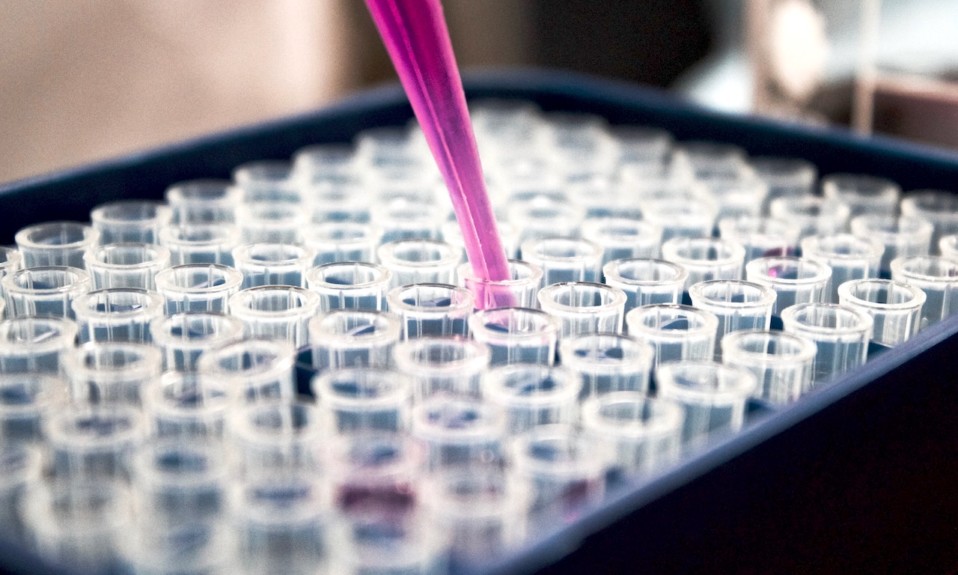For those with AUD, a combo of ketamine and mindfulness therapy could prolong abstinence and prevent relapse
By Veronica L. Holyfield
Over the years, multiple studies have supported ketamine as a treatment for mental health disorders such as depression. Only recently, however, has the drug’s potential been analyzed in-depth for substance misuse, particularly alcohol use disorder (AUD). Now, new research out of the U.K. reveals just how much promise ketamine offers in treating AUD. In a groundbreaking study published this month, the University of Exeter’s Ketamine for Reduction of Alcohol Relapse (KARE) trial found a significant correlation between low-dose ketamine and sustained AUD relapse prevention and abstinence.
Ketamine is a promising candidate in helping those with AUD in early sobriety, primarily due to its antidepressant properties, which alleviate symptoms during the high-risk relapse period shortly after detoxification. Technically an N-methyl-D-aspartate receptor antagonist, ketamine has traditionally been used as an anesthetic in medically supervised environments, and though it has become an increasingly prominent street drug, scientists are eagerly exploring its multifaceted possibilities within the therapeutic realm.
Where previous clinical trials studies looked at controlled ketamine in isolation as a treatment for AUD, the KARE trial is the first to combine ketamine and psychological therapy in a mental health context. When low-dose administration of the medication was combined with psychotherapy, the results were noteworthy.
“This combination showed benefits still seen six months later, in a group of people for whom many existing treatments just don’t work.”
—Celia Morgan, University of Exeter
The double-blind study, published in the American Journal of Psychiatry, involved 96 people with AUD who were recently detoxified. The primary group was given three infusions of ketamine coupled with seven sessions of mindfulness-based relapse-prevention therapy; other participants received ketamine without psychotherapy; therapy without ketamine; and full placebo. The ketamine-plus-therapy group experienced significantly better results than the other three, as measured by days of abstinence from alcohol—162 out of 180—at the six-month post-trial follow-up. These findings suggest a strong benefit in combining ketamine medication and psychological therapy.
“This is extremely encouraging,” lead author Celia Morgan, PhD, of the University of Exeter said, “as we normally see three out of every four people returning to heavy drinking within six months of quitting alcohol. This result represents a great improvement.”
In the study, sessions were timed so that ketamine infusion was preceded by a mindfulness session and followed by another about 24 hours later. The aim of the therapy sessions was to support the participants in developing an enjoyable and meaningful life without alcohol. Mindfulness-based approaches have been found to be effective in substance use disorder treatment, and the Exeter study reinforces that this therapeutic approach is a good fit when paired with ketamine. The drug experience can act to bring added insights to early-stage mindfulness practice, in addition to creating an open-minded approach to a transformational experience. “The experiences people describe after taking ketamine infusions suggest the drug gives a new perspective that may be helpful in psychological therapy,” notes Exeter’s Merve Mollaahmetoglu, MSc, who contributed to the research. “Participants told us this experience helped change their relationship with alcohol.”

Said one participant in the study: “The sense of oneness that I felt and the sense of moving away from focusing on the worries and the small stuff is helpful in terms of improving my relationship with alcohol. Because I think I used alcohol as a self-medication and as a blocking and avoiding mechanism. And I think feeling that those issues are less prevalent or at least less important means I feel less motivated to drink.”
Before the trial, participants were drinking daily before detox and consuming on average the equivalent of 50 pints of strong beer per week. During the six-month trial period, participants given ketamine and psychotherapy exceeded recommended guidelines on only five days in total on average. The study’s authors say this represents cutting the risk of death from alcohol-related problems tenfold, from 1 in 8 to 1 in 80. Patients given ketamine also had lower instances of depression after three months, regardless of whether the medication was combined with therapy or not.
The study also looked at liver function among participants, since ketamine use has been a concern for people with AUD due to potential liver problems. The Exeter study found the medication to be safe and well-tolerated in clinical conditions; liver function actually improved in the ketamine group because those participants were drinking less alcohol.
“We now have an early signal this treatment is effective,” Morgan said of the phase II trial, which tested the safety and feasibility of the treatment. “We now need a bigger trial to see if we can confirm these effects.”
She added: “We’re certainly not advocating taking ketamine outside of a clinical context. Street drugs come with obvious risks, and it’s the combination of a low dose of ketamine and the right psychological therapy that is key, as is the expertise and support of clinical staff. This combination showed benefits still seen six months later, in a group of people for whom many existing treatments just don’t work.”
Dual Diagnosis, Dual Treatment
Thanks to the study, ketamine now may be a beacon of hope for those who have a dual diagnosis of depression and AUD. The finding that the medication can reduce both alcohol use and depression is encouraging therapeutically, the Exeter study notes, and while there is a clear link between AUD and depression, substance misuse and mental health services still struggle to meet the needs of those who fit into both criteria.
“The trial shows that ketamine therapy may be one way we’re able to reverse alcohol-related harms experienced by so many.”
—Anne Lingford-Hughes, Imperial College London
“Ketamine may represent a solution to this longstanding comorbidity,” say the study’s authors, emphasizing the promise of accompanying it with therapy as a way of extending the clinical benefits.
The combination of medical intervention and psychotherapy is not new to the research and recovery communities—in fact, it is prevalent. While additional study is needed for this promising method of treating addiction and preventing relapse, with the potential for both greater benefits and lower costs, now is the time to explore and implement ketamine-assisted psychotherapy treatments.
As Professor Anne Lingford-Hughes, PhD, of Imperial College London, a co-author of the study, said, “The trial shows that ketamine therapy may be one way we’re able to reverse alcohol-related harms experienced by so many.”
Top photo: Levi Xu














